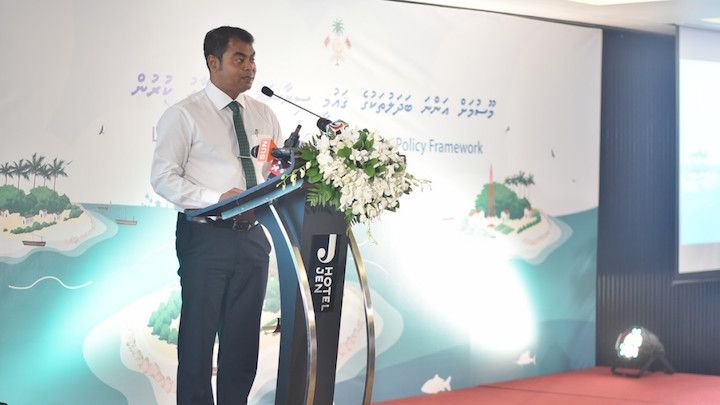National climate change policy framework launched
The ‘Maldives National Climate Change Policy Framework’ was unveiled today, outlining strategies for achieving sustainable financing, low emission development, adaptation, capacity building and leading advocacy at climate change negotiations, and fostering sustainable development.

10 Aug 2015, 09:00
The ‘Maldives National Climate Change Policy Framework’ was unveiled today, outlining strategies for achieving sustainable financing, low emission development, adaptation, fostering sustainable development capacity building and leading advocacy at climate change negotiations at the COP21 in Paris later this year.
The 10-year plan with “strategic polices for responding to climate change impacts” was launched at a ceremony at the Hotel Jen in Malé by President Abdulla Yameen’s special envoy and fisheries and agriculture minister Dr Mohamed Shainee.
In his remarks at the ceremony, environment minister Thoriq Ibrahim said “the policy was developed based on scientific research and in consultation [with] local experts on sustainable development,” according to the environment ministry.
The new policy would “open new doors for addressing climate change impacts and facilitate commencement of new projects” and “guide national action to contribute to international efforts to address climate change.”
Become a member
Get full access to our archive and personalise your experience.
Already a member?
Discussion
No comments yet. Be the first to share your thoughts!
No comments yet. Be the first to join the conversation!
Join the Conversation
Sign in to share your thoughts under an alias and take part in the discussion. Independent journalism thrives on open, respectful debate — your voice matters.




